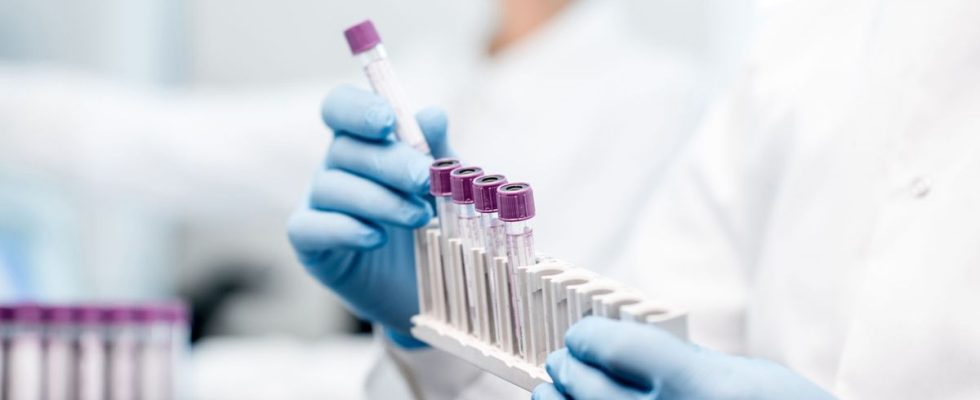Published on
Updated
Reading 3 mins.
As diagnoses of gonorrhea and syphilis hit record highs in the UK, health authorities are pushing to speed up studies of ultra-rapid tests. These could provide an answer in just 20 minutes and allow early treatment.
Getting tested for a sexually transmitted infection when in doubt, and getting the results in minutes to start treatment, may soon become possible. At least on the other side of the Channel, for the moment. Faced with the skyrocketing rise of diseases such as gonorrhea or syphilis in the country, the authorities accelerate the pace of implementation of this valuable tool.
A blend of enzymes that reveals infections almost instantly
The new test, developed by the University of Birmingham, works by adding a mixture of special enzymes to the sample (vaginal swab or urine test) which instantly multiplies traces of bacterial DNA, making it easier to identify. This technique also allows clinicians to identify both infections from a single specimen.
“Traditional tests work like the PCR tests we saw in Covid – they require a specific environment to give an accurate result, for example a certain ambient temperature. But the new technology requires less maintenance and relies on a smaller portion of DNA for a result.” explains Professor Dafforn, professor of biotechnology at the University of Birmingham in the Dailymail of June 10th.
Go faster to increase efficiency
Currently, the results of conventional tests used for chlamydia and gonorrhea take up to ten days to be analyzed and returned. But the time to curb the infections seems to be running out: figures released last week by the UK’s Health Security Agency showed diagnoses of gonorrhea and syphilis are at their highest since records began in 1918.
Incidences of chlamydia – the most common STI – have also risen by a quarter between 2021 and 2022 to almost 200,000. Both are easily treated with a course of antibiotics, if detected early. But if left untreated, both can lead to infertility and severe pelvic pain.
“The biggest challenge is getting patients to come back to the clinic for their results,” explains Tim Dafforn. Half of those who go to clinics to get tested do not return because of embarrassment and miss treatment. It’s a real shame, since these infections are very easy to treat.” Being able to offer treatment in the wake of screening would thus make it possible to target more people while avoiding the embarrassment caused by this taboo.
The screening tool is backed by UK health watchdog the National Institute for Health and Care Excellence (NICE), which wants to speed up its market launch – expected within two years. The researchers say it will first be used in doctors’ surgeries and pharmacies, but they also want it to be able to be used via combinations (like rapid HIV tests).
Screening, a necessary tool in France too
A rapid test to detect STIs would also be welcome in France where STIs have been on the rise since the early 2000s.
In 2021, according to health insurance data, 96,900 people were diagnosed with Chlamydia trachomatis infection at least once a year, an increase of 15% compared to 2020 and 9% compared to 2019. This number more than doubled between 2014 (approximately 40,700) and 2021. The annual incidence of cases of gonococcal infection seen in general medicine consultations in mainland France was estimated at 21,750 cases in 2021, an increase of 45 % compared to 2020.
The annual incidence of syphilis cases seen in general medicine consultations in mainland France was estimated at 9,291 cases in 2021, an increase of 42% compared to 2020. An increase which gave rise to the measure of free condoms for under 26 since last January. But the issue of screening needs to be addressed more broadly.
